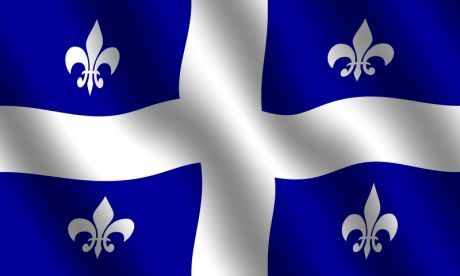News
You are here
Will NDP lack of clarity come home to roost in Québec?

March 29, 2013
When former NDP MP Claude Patry crossed the floor to join the Bloc Québécois in late February, the brief buzz in the media quickly died down. But it would be a mistake to think that this defection is just a blip on the political landscape.
The issue over which Patry left the NDP was the introduction of a bill by the Bloc Québécois to repeal the Clarity Act, which sets rules for future referenda on Quebec's separation from Canada. After a whipped vote against repealing the Clarity Act, the NDP leadership congratulated itself that no other members of its Quebec caucus broke ranks. This short-sighted read of the situation is the product of wishful thinking and the very shallow roots of the federal NDP in Quebec.
At a press conference during his recent trip to Washington, NDP Leader Thomas Mulcair stated that in the 2011 federal election, Canadians “didn’t just embrace the positive and optimistic vision put forth by the New Democratic Party, they saw themselves as part of it. Nowhere was this more true than in my home province of Quebec, where millions of voters made history by delivering a resounding ‘no’ to the politics of division that had weighed us down for so long.”
The 1,628,000 people in Quebec who voted for the NDP in 2011 did indeed feel that this was the best way to fight Harper. But this sentiment is wrongly being merged with the notion that Quebeckers no longer care about the national question. This was expressed most unambiguously by NDP stalwart Stephen Lewis, who claimed that the Orange Wave in Quebec was “a repudiation of sovereignty.” Whether or not people feel at any given time that the national question is a priority, recent history shows how quickly that can shift.
The decision by the NDP to introduce a private members’ bill to counter the Bloc's bill has been hailed by some on the left as a deft attempt by the NDP to walk a line between the Clarity Act and the NDP's own Sherbrooke declaration which says the party would recognize a majority decision of 50 percent plus 1 in a referendum on sovereignty. Bill C-470, dubbed the “Unity Act,” was co-drafted by Mulcair and NDP MP Craig Scott. While it argues that 50 per cent plus 1 represents a clear majority, it is a step backward from the Sherbrooke declaration, allowing Canada to decide what constitutes a "clear" question in a future referendum.
It even contains examples of questions that would be considered allowable, such as “Should Quebec become a sovereign country?” and “Should Quebec separate from Canada and become a sovereign country?” Bloc leader Daniel Paillé stated that the NDP's spelling out of an eventual Quebec referendum question is an insult that even the Liberal Party wouldn't have risked.
The pattern has been that delegates to NDP conventions are to the left of those whom they elect. A majority of delegates to the federal NDP convention rejected the Clarity Act, but NDP MPs supported it. While a majority of delegates voted in 2005 for the Sherbrooke Declaration (a document which is not without its flaws), their MPs are now going against that declaration by introducing Bill C-470.
This will inevitably undermine any steps forward in building a united fightback in Quebec and English Canada against the devastation being wrought by Harper and his goons. Whether it is challenging EI inspectors or defending public sector workers, there is much to unite around. But meaningful unity is built on the highest common denominator, which includes recognizing the full right to self determination, whether for Quebec or First Nations. Anything less will likely mean a short-lived Orange Wave in Quebec.
Section:










